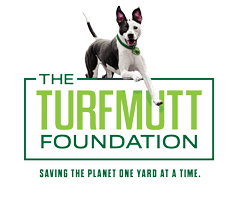Latest Posts
- Have a purpose when backyardingAugust 5 2021
- Study: Time outside alters our microbiomeAugust 4 2021
- Happy National Mutt Day from Mo-MoJuly 27 2021
- New home? Avoid these common mistakes in your yard.July 26 2021
- Infographic: Plan a backyard staycation this summerJuly 22 2021
Categories
Archive
July 3rd
Do You Know What Grasscycling Is?
No, it’s not riding your unicycle around the lawn. It’s a fancy term for recycling those grass clippings. The EPA web site has great ideas how to compost, which programs are available in your area and lists the environmental benefits of composting.
According to the site, not everything is compostable.
Do compost:
- Animal manure
- Cardboard rolls
- Clean paper
- Coffee grounds and filters
- Cotton rags
- Dryer and vacuum cleaner lint
- Eggshells
- Fireplace ashes
- Fruits and vegetables
- Grass clippings
- Hair and fur
- Hay and straw
- Houseplants
- Leaves
- Nut shells
- Sawdust
- Shredded newspaper
- Tea bags
- Wood chips
- Wool rags
- Yard trimmings
Do not compost:
- Black walnut tree leaves or twigs – Releases substances that might be harmful to plants
- Coal or charcoal ash – Might contain substances harmful to plants
- Dairy products (e.g., butter, milk, sour cream, yogurt) and eggs* – Creates odor problems and attract pests such as rodents and flies
- Diseased or insect-ridden plants – Diseases or insects might survive and be transferred back to other plants
- Fats, grease, lard, or oils* – Create odor problems and attract pests such as rodents and flies
- Meat or fish bones and scraps* – Create odor problems and attract pests such as rodents and flies
- Pet wastes (e.g., dog or cat feces, soiled cat litter)* – Might contain parasites, bacteria, germs, pathogens, and viruses harmful to humans
- Yard trimmings treated with chemical pesticides – Might kill beneficial composting organisms
For more, consult this link.





